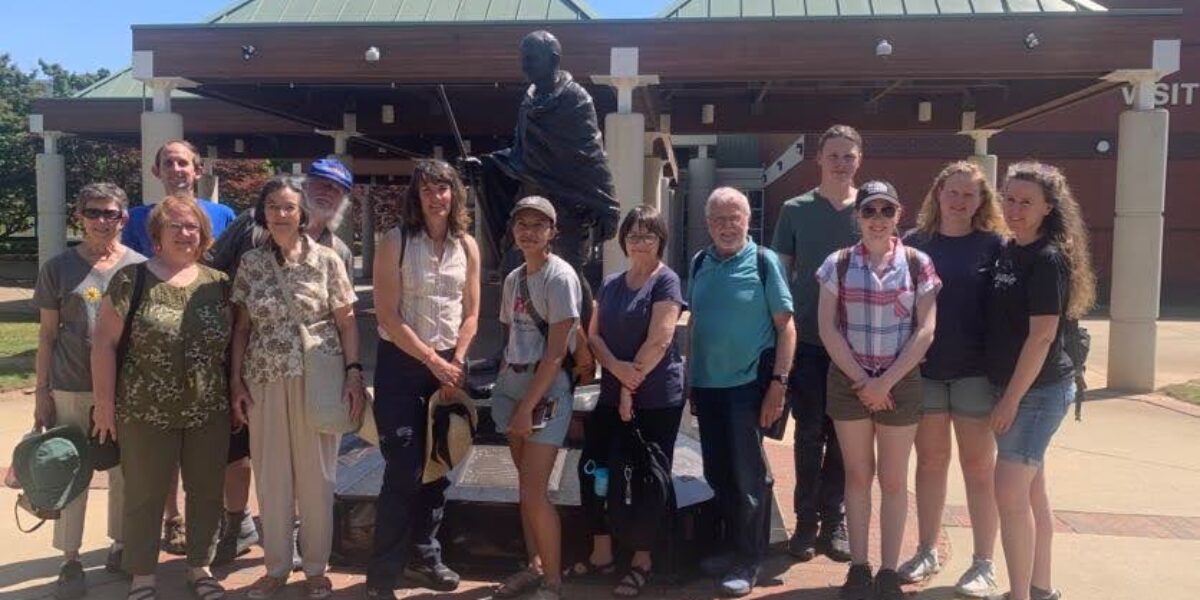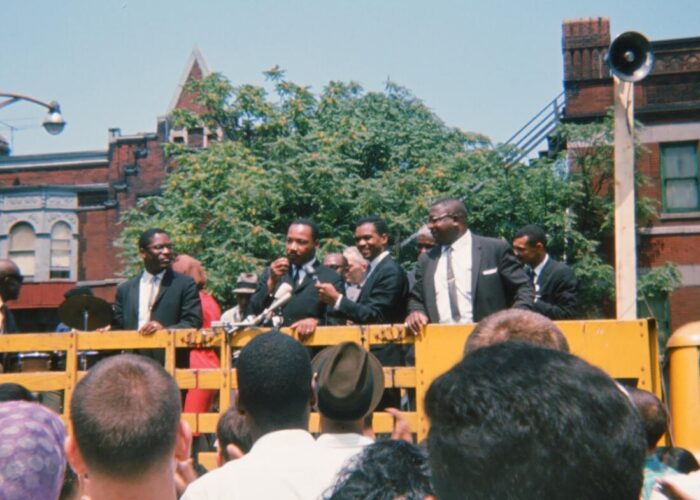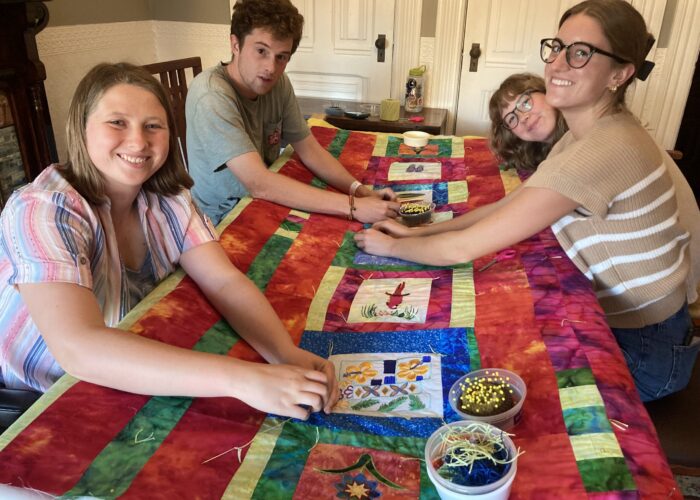Jennifer Murch participated in the Just Peace Pilgrimage Civil Rights Learning Tour in April, 2023. Her thoughts are broken down into six blogs, spanning all six days of the tour. Read days one and two here. Read day three here.
Just Peace Pilgrimages are new group learning experiences through Mennonite Mission Network. For more information about upcoming pilgrimages, click here.
We spent Day Four touring Montgomery, Alabama, and then driving the route of the Voting Rights March, but in reverse — from Montgomery to Selma.
Our tour guide was Jake Williams. He knew everything — dates, names, stories: my head was spinning! — and he spoke with an enchanting poetic lyricism. I didn’t write anything down (I was too intent on listening to write), but I do remember that he said regarding an abandoned town: that it "got lost" — which perfectly encapsulated that sad-grief feeling I got when visiting those once-vibrant neighborhoods.
 Photo credit: Rose Shenk.
Photo credit: Rose Shenk.
Everything happened in Montgomery, it seemed. Mr. Williams pointed out the place where Rosa Parks got on the bus and, a couple blocks later, where she was told to give up her seat. "The theaters had just let out," he said, indicating two old buildings on either side of the street, "and the buses were filling with movie goers." Later when we drove through the campus of Alabama State College, he pointed to the building where the civil rights workers had used the college’s mimeograph machine to print 50,000 flyers alerting the Black community of the strike that very night.
 Jake Williams speaks to the group near a statue of Rosa Parks. Photo credit: Arloa Bontrager.
Jake Williams speaks to the group near a statue of Rosa Parks. Photo credit: Arloa Bontrager.
He took us through the wealthy part of Montgomery where fancy churches stretched for whole blocks. "We Alabamans love our churches," he said. "We live with the Bible in one hand and a pistol in the other." He showed us where the public pool was that the city had closed for five years rather than integrate it, and he pointed out a park that used to be whites-only and told us about the Black boy had been murdered for taking a shortcut through it.
 Court Square, Montgomery: where slave auctions were held. Photo credit: Rose Shenk.
Court Square, Montgomery: where slave auctions were held. Photo credit: Rose Shenk.
At the Southern Poverty Law Center, he pointed to the lone guard standing out front. "It looks like no one’s guarding the place," he said, "but let me assure you, there’s a whole lotta more protection than just that one guard." And at the capitol building, as he parked the van along the curb for his lecture, he said, "You’ll notice no police are in sight, but they are watching me right this very minute. If I so much as go up and touch that Jefferson statue" — alluding to the recent attempts to remove it — "they will be everywhere."
The baby of sixteen children, Mr. Williams was born and raised in Lowndes County, the county between Montgomery and Selma and home of the Black Panther Movement. When the Voting Rights March took place, there were no registered Black voters in Lowndes. A twelve-year-old at the time, Mr. Williams joined the march for one day. As we drove along Route 80 heading for Selma, he kept pointing out which lane of road was the original and which one wasn’t (they’d switch back and forth), and the place where the road had narrowed to a single lane and the marchers had to downsize their count to 300, as per the agreed-upon number for that stretch.
He showed us the spot where he saw Martin Luther King Jr., pointed out the sprawling ranch house set back from the road where his mother had been the housekeeper ("She had to arrive at work early so she could have breakfast on the table when the family woke up"), and he showed us the campsites where marchers slept, explaining what happened to the landowners that allowed the marchers to use their land (one was unable to purchase stock for her store, another had their bank account frozen), as well as the stories of the three murders that resulted because of the march.
"Five days, fifty-four miles, four campsites, three murders, and three repercussions," he said as we neared Selma. "That’s how I describe the march. You ready for the test?"

We briefly drove around Selma (lots of churches, and lots of damage from the recent tornado), and then parked so we could walk across the Edmund Pettus bridge on the same path the marchers took.
That afternoon we drove to Mississippi and stayed at Pine Lake Camp, which was ridiculously gorgeous and packed with wonderful places to play and explore.

As soon as we parked, the kids raced down to the water and took off pedaling, paddling, and rowing. After so many days of driving and listening, we were all in desperate need of fresh air and open spaces.

It was just the thing.
P.S. After writing this post, I discovered a YouTube video of — get this — Mr. Williams giving a tour! I haven’t watched all of it yet, but I highly recommend you do (and then report back when you find my mistakes). He’s wonderful.





